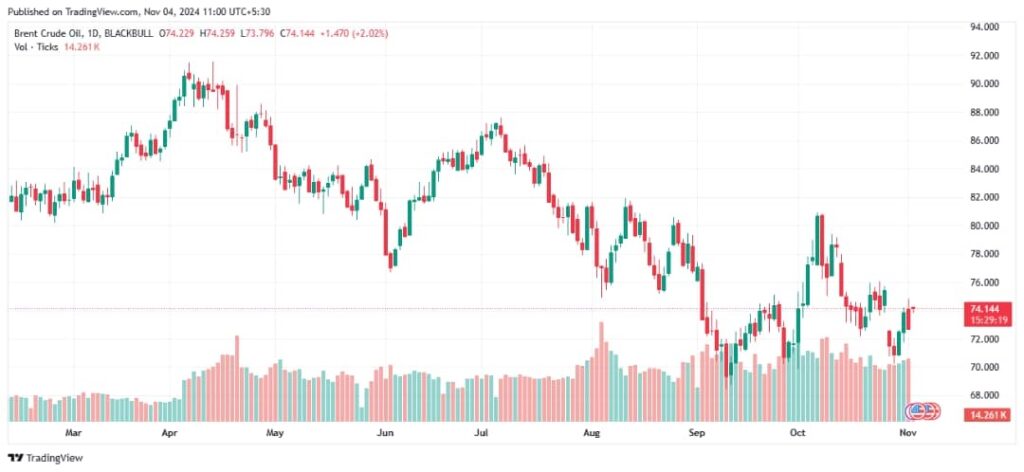
Akintunde Oyedokun
Research analyst
Oil prices rose slightly Friday following reports of a potential Iranian attack on Israel from Iraq, sparking market concerns. Brent crude gained 29 cents (0.4%) to close at $73.10 per barrel, while WTI crude added 23 cents (0.3%) to settle at $69.49. Both benchmarks saw intraday gains above $2 per barrel but ended the week down, with Brent slipping around 4% and WTI down 3%, as record U.S. production continued to keep prices in check. The price movement reflects heightened regional tensions against the backdrop of recent Gaza-related clashes.
Argentina’s Central Bank Slashes Rate To 35%, Amid Inflation Battle Optimism
Argentina’s central bank cut its benchmark interest rate by 500 basis points to 35% on Friday, sparking a market rally and reflecting the government’s growing confidence in controlling triple-digit inflation. This marks the seventh rate reduction since libertarian President Javier Milei took office in December when the rate stood at 133%. Bond prices rose 2% on average, and the country risk index fell. The central bank cited lower inflation expectations and strengthened fiscal policies as key factors behind the decision.
Indonesia’s Inflation Slightly Above Forecast, Allowing Room For Rate Cuts
Data released for October indicates that Indonesia’s inflation rates exceeded predictions, with headline inflation at 1.71%, a decrease from 1.84% in September but above the expected 1.68%. Core inflation climbed to 2.21%, the highest since July 2023, influenced by rising gold prices and surpassing the anticipated 2.09%.
Bank Indonesia (BI) previously lowered interest rates in September and may pursue further monetary easing if inflation stays low. The timing of any additional cuts will depend on global market conditions, with the next policy meeting scheduled for November 19-20.
South African Manufacturing Activity Grows For 2nd Straight Month In October
South African manufacturing activity increased for the second month in a row in October, marking the first time since early 2023 that the sector has shown back-to-back growth. The seasonally adjusted PMI from Absa Bank fell to 52.6 points, down from a revised 53.3 in September, but remained above the crucial 50-point mark for expansion. Strong performance in business activity and new sales orders was reported, with Absa anticipating further growth as benefits from September’s interest rate cut and lower inflation boost consumer spending.
Nigeria’s Hunger Crisis Deepens As Food Insecurity To Hit 33.1m Next Year
A report from the government and the United Nations indicates that Nigeria is facing a severe hunger crisis, with over 30 million people expected to be food insecure next year—up one third from this year. Economic hardships, exacerbated by President Bola Tinubu’s austerity measures, including naira devaluation and the removal of a petrol subsidy, have led to rising inflation and food prices. The analysis forecasts that 33.1 million people will be food insecure by August 2025, compared to 24.8 million by the end of this year.









